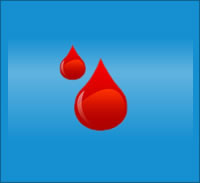No More Blood Shortage Globally

CIIE (Centre of Innovation, Incubation & Entrepreneurship) of Indian Institute of Management, Ahmedabad awarded the blood model concept of Nahak as one of the innovative social model in National Search of Innovation in Year 2005 Background
India experiences shortage of blood almost in every state. Blood banking is still in the hands of private sector where money making is a major motive. To make the matter worse, Indian government, Supreme Court and the authority do not have any idea of the problems and have created hurdles by enforcing strict regulations. As a result, almost all states of India have blood deficeit ranging from 20 - 50% of demand (2 state governments had to declare emergency and one of the state have forced their police force to donate blood). This has resulted in malpractices, profiteering, spurious blood supply and / or blood given only on exchange (where family members of the patient have to donate blood for replacement). Our Experiment
We started an experiment in the state of Gujarat, Western India. We called 30 private blood bank owners and made them agree to co-operate for their own interest. We explained to them the real problems of supply & demand. Actually demand of blood was mainly generated in four metropolitan cities where major hospitals and medical facilities were available. Blood was collected at various places in the state. Each blood bank had a problem either with the demand or supply of blood. We worked out the logistics and demand-supply system. We proposed the following schemes so as to have efficient and increased blood availability, which in turn increased the 'business' of blood banks. Networking
All the blood banks were asked to co-operate, to accommodate and serve each donor of other blood banks. For example, if you are a donor of 'X' blood bank and you need blood anywhere in Gujarat state, then all the blood banks will extend the same facilities to you as if you are their member / donor. This helped donors and patients tremendously as they were treated as member / donor and could get blood free of charge and without replacement. Networking was elaborately defined and put in place. There were many issues of accounting, quality of blood, systems of quality assurance. All the problems were attended to the satisfaction of participating member. Networking alone helped us meet with shortage to the extent of 25 - 30%. It also generated good result in donorís participation to the tune of increased blood supply. Moreover, rare blood groups were easily available to every patient in the state. Blood Assurance Scheme
We studied the supply & demand patterns and based on statistical model designed an assurance scheme, which was launched simultaneously as under: The Scheme
If one member of a family donates blood once in a year, he is entitled to various benefits as under:
He can get blood anywhere in the state where networked blood banks are available (30 blood banks are networked and have covered each zone of the state). The scheme turned out to be a grand success and we could generate excess blood in the state of Gujarat. IT MAY BE MENTIONED HERE THAT FOR THE FIRST TIME IN BLOOD BANKING HISTORY OF INDIA, ONE STATE - GUJARAT WHICH GENERATED EXCESS BLOOD AND OFFERED TO NEIGHBOURING STATE i.e. MAHARASHTRA. This all could happen without the assistance of the Government. Other Objectives
Knowledge bank for blood: To create knowledge bank and information warehouse on Blood, Blood Transfusion and related issues management such as
|
